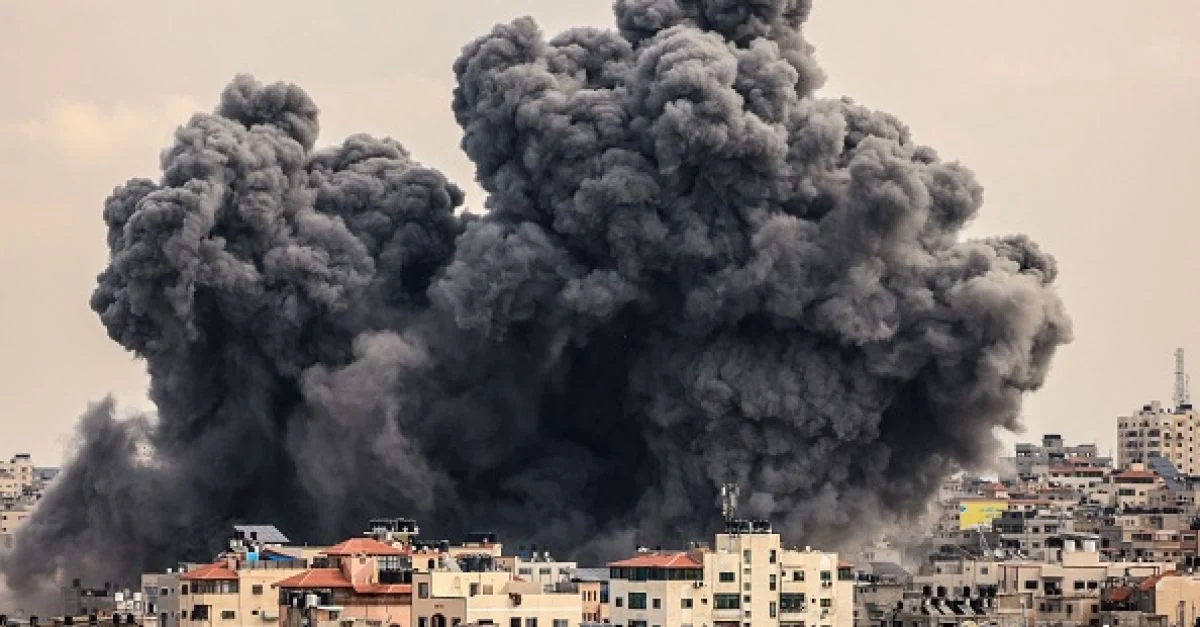Editorial
Israel-Gaza War: Ending Carnage On Journalists

On October 13, 2023, a group of journalists had assembled at the border between Israel and southern
Lebanon with the objective of transmitting real-time updates to the Reuters news agency. They were in the process of reporting on a skirmish between Israeli soldiers and the Lebanese militant organisation, Hezbollah, when an Israeli shell unexpectedly landed close to their location, resulting in the tragic death of a videographer and injuries to six other individuals. This incident is a distressing reminder of the risks that journalists are exposed to in their pursuit of disseminating accurate information to the public.
The above tragedy is now among the numerous instances that exemplify the unparalleled impact that the Israel-Hamas War has had on journalists since its commencement on October 7. As of January 6, 2024, international organisations such as the Committee to Protect Journalists (CPJ) and Reporters Without Borders (RSF) said that a minimum of 77 journalists and media personnel had lost their lives out of the staggering total of over 23,000 casualties since the onset of the conflict, marking more than 22,000 Palestinian fatalities in Gaza and the West Bank, along with 1,200 deaths in Israel.
According to CPJ, the initial weeks of this war had been the most lethal timeframe for journalists reporting on conflicts since 1992, when the organisation commenced monitoring. Journalists stationed in Gaza City, who are covering this conflict, are operating under highly hazardous circumstances attributable to the initiation of Israeli airstrikes and a ground invasion, as well as the presence of power outages and disruptions in communication channels. Moreover, they are exposed to perilous risks such as physical attacks, arrests, censorship, and potential harm to their family members.
In a particular occurrence, a news reporter affiliated with the Qatar-owned television network, Al Jazeera, Wael Al-Dahdouh, was engaged in a live broadcast showcasing the distressed area on the 28th of October, when he received the devastating news of his wife, teenage son, and daughter falling victim to an Israeli airstrike. Shortly thereafter, the live footage captured Dahdouh’s entrance into Al-Aqsa Hospital as he sought to locate his son’s lifeless body in the hospital’s morgue.
Similarly, a journalist and correspondent for the Palestinian Authority-funded broadcaster, Palestine TV, Abu Hatab, along with 11 members of his family, was tragically killed in an Israeli airstrike on their residence in Khan Younis, located in the southern Gaza Strip. These distressing events were reported by the Palestinian Authority’s official news agency, Wafa, and the news outlet, Roya News, based in Amman.
On October 20, it was officially announced by The Times of Israel and the International Federation of Journalists (IFJ) that Israeli journalist, Idan, was found dead after his body was retrieved. Idan, who worked as a photographer for the Israeli newspaper, Ynet, was initially reported as missing following a Hamas attack on Kibbutz Kfar Aza on October 7, which resulted in the tragic loss of his wife and daughter. CPJ has verified that he was indeed working on the day of the attack. The list is endless.
Reporters Without Borders has recently urged the International Criminal Court (ICC) to conduct an investigation into the deaths of eight Palestinian journalists who were allegedly killed during Israel’s bombing of civilian areas in the Gaza Strip. Additionally, the organisation highlighted the death of an Israeli journalist in the surprise attack by Hamas in southern Israel. The complaint also mentions the intentional destruction, either fully or partially, of over 50 media facilities in Gaza since the war began.
The severity of the killings of journalists necessitates the intervention of the ICC for thorough investigation. We earnestly plead with all parties involved in armed conflicts to refrain from deliberately targeting journalists who courageously carry out their essential duties during times of crises. Although journalists have always played a crucial role in war situations, their work holds even greater significance during the Israel-Hamas war because of the surge in disinformation and the ease with which it can be spread and amplified.
In the ongoing conflict between Russia and Ukraine, a total of 17 journalists have lost their lives since the war commenced in 2022. The most recent reported incident occurred in May, claiming the life of French cameraman, Frederic Leclerc-Imhoff.
Regrettably, the US-led invasion of Iraq initiated a series of hostilities that proved especially perilous for journalists, establishing a distressing pattern that persists to this day. According to CPJ, a staggering 283 journalists have met their untimely demise in Iraq since 2003. Notably, this figure includes 11 journalists who perished during the first month of the war, spanning from March to April 2003.
Despite the globally accepted view that journalists ought to operate freely within conflict zones, the Israeli-Hamas ongoing conflict starkly disrupts this assumed privilege. The vicious circle of violence cruises on incessantly, shedding endless innocent blood. All inter-governmental, non-governmental organisations (NGOs), and lobby groups should collaborate and work against the dreadful carnage of journalists. Their voices, condemnation, and advocacy may prove pivotal in pushing both the Israeli government and Hamas towards embracing mutual respect for journalists.
The killing of journalists in the Israel-Hamas war calls for an immediate and aggressive response. The international community, media houses, and governments can bring about the change needed to safeguard journalists’ lives. In the long run, these measures will not only instil a culture of respect for members of the press within conflict zones but also ensure even war scenarios do not obscure the light of journalism. Thus, the world owes a lot to journalists; it is high time we guaranteed their protection and survival amid such turmoil as the Israel-Hamas conflict.
Editorial
Time For GL 17 In Rivers

Editorial
For A Prosperous 2026


